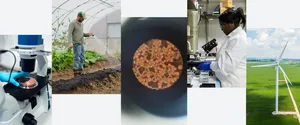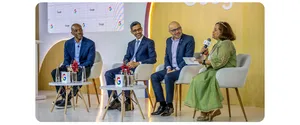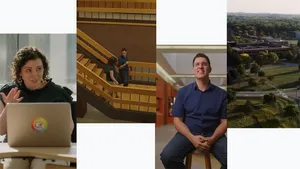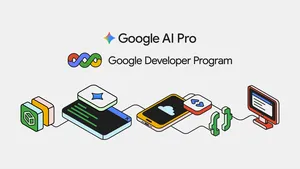How AI could tackle a problem shared by a billion people

Earlier this month, Google AI Impact Challenge grantees from around the world gathered in San Francisco to start applying artificial intelligence to address some of the world’s toughest problems, from protecting rainforests to improving emergency response times.
In addition to receiving part of the $25 million pool of funding from Google.org, each organization is participating in a six-month program called the Launchpad Accelerator. The accelerator kicked off with a week-long boot camp which included mentorship, workshops, presentations from AI and product experts and an opportunity to connect with other grantees. They also received support and guidance from DataKind, a global non-profit dedicated to harnessing the power of data science and AI in the service of humanity. Throughout the accelerator, grantees will receive ongoing support and coaching from their Google mentors as they complete the first phase of their projects.
We sat down with Rajesh Jain from grantee Wadhwani AI, an Indian organization with a project dedicated to using AI to help farmers with pest control, to learn more about the problem he and his team are setting out to solve, and how support from Google will help them get there.
Rajesh Jain taking a photo of a pest trap

Why is pest control such a big issue?
More than a billion people around the world live in smallholder farmer households. These are farms that support a single family with a mixture of cash crops and subsistence farming. Many of these farmers struggle with pest damage that can wipe out a devastating amount of annual crop yield, despite heavy usage of pesticides. Currently, many farmers track and manage pests by manually identifying and counting them. In India, some send photos of pests to universities for analysis, but the advice often arrives after it’s too late to prevent irreversible damage to their crops. Last season, nearly 1,000 cotton farmers in India committed suicide after a pink bollworm attack destroyed 40% of the cotton yield. At Wadhwani AI, we’re creating technology that will help reduce crop losses.
What will you use the funding and support from Google for?
Before applying for this grant, we had already developed algorithms that detect two major pests, and have successfully tested this in parts of India. We plan to use the mentorship and funding from Google.org to develop a globally scalable pest management solution. This will allow farmers and agriculture program workers to take photos of pest traps and use image classification models on their phones to identify and count the pests and receive timely intervention recommendations, including what pesticides to spray and when. The goal is to provide millions of farmers with timely, localized advice to reduce pesticide usage and improve crop yield.
Going into the Launchpad Accelerator kickoff, what were you hoping to get out of it?
We’ve been working on this for nine months now—and we believe we’ve discovered a solution to this problem. We’re a small team, so funding and collaborations are necessary for us to succeed. We really needed help to scale our whole infrastructure. At first our goal was to get the project working, but we want this to be helpful to people around the globe, not just the subset of people who tested our first prototype. Companies like Google operate at scale so we were excited to get advice on how to do this.
What did you learn?
We were really impressed with the kind of mentors we met with, especially the AI coach we’ve been assigned to work with in the coming months. He helped us set very concrete goals and we’re excited to continue to have his support in accomplishing them. It was helpful to learn practices that are commonplace at Google that can change how we do our work. For example, we learned and plan to implement right away when we get back is “Stand up Mondays” - it’s important for us to be on the same page - so this is a way to get us focused and connected at the start of the week.
What do you think is going to be the most challenging part of your project?
We have the technology, but scaling it and making it accessible to farmers will be difficult. There are differences in literacy, diversity, cultural differences, climate differences. We need to scale our solution to address all the challenges. We’re really looking to lean on the mentorship from Google to help us design the app so it’s scalable.
What are you most optimistic about?
We have confidence in our technical capabilities - and we got a lot of confirmation from other AI experts that this is a good idea. We’re excited to get to work.






